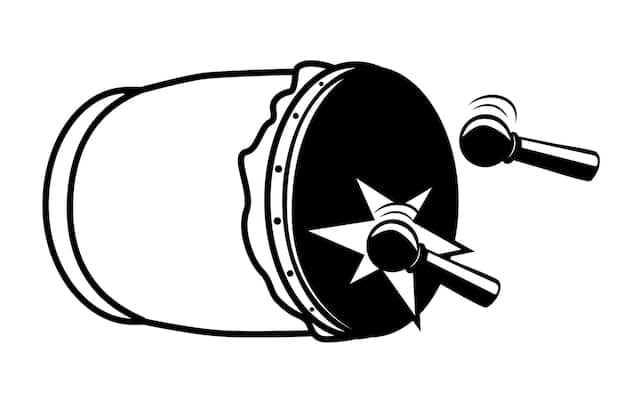Stop Debt Collector Harassment: Your Rights Under FDCPA

Stop harassment from debt collectors by understanding your rights under the Fair Debt Collection Practices Act (FDCPA), which protects you from abusive, unfair, and deceptive debt collection practices, ensuring fair treatment and providing legal recourse.
Are you receiving relentless calls, threatening letters, or facing abusive language from debt collectors? It’s crucial to stop harassment from debt collectors, and the Fair Debt Collection Practices Act (FDCPA) is your primary shield. This comprehensive guide will equip you with the knowledge to protect yourself and understand your rights.
Understanding the Fair Debt Collection Practices Act (FDCPA)
The Fair Debt Collection Practices Act (FDCPA) is a federal law enacted to protect consumers from abusive, unfair, and deceptive practices used by debt collectors. It sets clear guidelines on what debt collectors can and cannot do when attempting to collect a debt.
Who is Covered by the FDCPA?
The FDCPA primarily covers debt collectors who regularly collect debts on behalf of others. This includes collection agencies, lawyers who regularly engage in debt collection, and companies that purchase debts and then try to collect them.
What Types of Debts are Covered?
The FDCPA applies to personal, family, and household debts. Common examples include credit card debt, medical bills, auto loans, and student loans. It generally does not cover business debts.

Here are some key provisions of the FDCPA:
- Debt collectors must identify themselves and the company they represent.
- Debt collectors must inform the consumer of the amount of the debt, the name of the creditor, and their right to dispute the debt.
- Debt collectors cannot engage in harassing, oppressive, or abusive conduct.
- Debt collectors must cease communication if requested in writing by the consumer.
In summary, the FDCPA serves as a fundamental safeguard against unethical debt collection tactics, ensuring fair and respectful treatment for consumers.
Prohibited Actions Under the FDCPA
The FDCPA explicitly prohibits certain actions by debt collectors to protect consumers from undue harassment and unfair practices. Knowing these prohibited actions is crucial in defending yourself.
Harassment and Abuse
Debt collectors cannot engage in any conduct that harasses, oppresses, or abuses any person. This includes:
- Using threats of violence or harm.
- Using obscene or profane language.
- Publishing a list of consumers who allegedly refuse to pay debts.
- Repeatedly calling or harassing someone over the phone.
False or Misleading Representations
Debt collectors are prohibited from making false or misleading representations, such as:
- Falsely implying that they are attorneys or government officials.
- Misrepresenting the amount or legal status of the debt.
- Threatening legal action that they cannot or do not intend to take.
Unfair Practices
Debt collectors cannot use unfair or unconscionable means to collect a debt, including:
- Collecting any amount not authorized by the agreement creating the debt or permitted by law.
- Depositing or threatening to deposit a postdated check prior to the date on the check.
- Causing charges to be made to a person by concealing the true purpose of the communication.
Understanding these prohibited actions empowers you to recognize and report violations of the FDCPA, protecting you from unethical collection practices.
Your Rights When Contacted by Debt Collectors
When a debt collector contacts you, you have specific rights under the FDCPA. These rights empower you to control the communication and ensure the debt collector is acting legally and ethically.
Right to Validation of the Debt
You have the right to request validation of the debt. Within five days of the initial communication, the debt collector must send you a written notice containing:
- The amount of the debt.
- The name of the creditor.
- A statement that unless you dispute the validity of the debt within 30 days, the debt will be assumed to be valid.
- A statement that if you notify the debt collector in writing within 30 days that you dispute the debt’s validity, the debt collector will obtain verification of the debt or a copy of a judgment and mail it to you.
- A statement that the debt collector will provide you with the name and address of the original creditor, if different from the current creditor.
Right to Cease Communication
You have the right to send a written request to the debt collector to cease all communication with you. Once they receive this request, they can only contact you to:
- Inform you that they will be taking specific action, such as filing a lawsuit.
- Inform you that they are terminating collection efforts.
Right to Sue
If a debt collector violates the FDCPA, you have the right to sue them in state or federal court. You can recover damages for:
- Actual damages, such as emotional distress or physical harm.
- Statutory damages up to $1,000, regardless of actual damages.
- Attorney’s fees and court costs.

Knowing and asserting these rights is vital in navigating debt collection interactions and ensuring fair treatment under the FDCPA.
How to Respond to Debt Collector Harassment
When faced with debt collector harassment, it’s essential to respond strategically to protect your rights and manage the situation effectively. Here are key steps to take:
Document Everything
Keep a detailed record of every communication with the debt collector, including:
- Date and time of the call or letter.
- Name of the debt collector.
- Company they represent.
- Summary of the conversation or content of the letter.
Send a “Cease Communication” Letter
If you want the debt collector to stop contacting you, send a written “cease communication” letter via certified mail. This letter should clearly state your request to stop all communication, except as permitted by the FDCPA.
Dispute the Debt
If you believe the debt is invalid or inaccurate, send a written dispute to the debt collector within 30 days of their initial communication. Request validation of the debt, including the original contract and payment history.
By taking these proactive steps, you can effectively manage debt collector interactions and protect yourself from further harassment.
Filing a Complaint Against a Debt Collector
If you believe a debt collector has violated the FDCPA, filing a complaint is an important step in holding them accountable and protecting other consumers. Here’s how you can file a complaint:
Consumer Financial Protection Bureau (CFPB)
The CFPB is a federal agency that oversees debt collection practices. You can file a complaint online through the CFPB website or by calling their toll-free number.
Federal Trade Commission (FTC)
The FTC is another federal agency that enforces the FDCPA. You can file a complaint online through the FTC website or by calling their toll-free number.
State Attorney General
Many state attorneys general have consumer protection divisions that handle debt collection complaints. Check your state attorney general’s website for information on how to file a complaint.
Filing a complaint can trigger an investigation into the debt collector’s practices and may result in enforcement actions, such as fines or cease-and-desist orders.
Seeking Legal Assistance
Navigating debt collection issues and understanding your rights under the FDCPA can be complex. Seeking legal assistance from a qualified attorney can provide valuable support and guidance. Here are some scenarios where legal help may be beneficial:
You’ve Been Sued
If a debt collector has filed a lawsuit against you, seeking legal assistance is crucial. An attorney can review the lawsuit, advise you on your legal options, and represent you in court.
You’ve Experienced Severe Harassment
If you’ve experienced severe or persistent harassment, such as threats, abusive language, or repeated phone calls at unreasonable hours, an attorney can help you pursue legal action against the debt collector.
You’re Unsure of Your Rights
If you’re unsure of your rights under the FDCPA or how to respond to a debt collector, consulting with an attorney can provide clarity and empower you to make informed decisions.
An attorney can also help you negotiate with debt collectors, file lawsuits for FDCPA violations, and defend against debt collection lawsuits. Seeking legal assistance ensures your rights are protected and can lead to a favorable resolution of your debt-related issues.
| Key Point | Brief Description |
|---|---|
| 🛡️ FDCPA Protection | Shields consumers from abusive debt collection practices. |
| 🚫 Prohibited Actions | Collectors can’t harass, mislead, or use unfair tactics. |
| 📝 Debt Validation | Right to request proof and details of the debt. |
| 🛑 Cease Communication | You can demand collectors stop contacting you. |
Frequently Asked Questions (FAQ)
▼
The FDCPA covers personal, family, and household debts, including credit card debt, medical bills, auto loans, and student loans. It generally does not cover business debts.
▼
Document the threat, cease communication, and file a complaint with the CFPB, FTC, and your state attorney general. Consider seeking legal advice due to the severity of the threat.
▼
Debt collectors cannot contact you at work if they know or have reason to know that your employer prohibits such communications. Inform them of your employer’s policy.
▼
The statute of limitations for collecting a debt varies by state and debt type. After this period, a debt collector can still try to collect, but cannot sue you to recover the debt.
▼
Debt validation is your right to request proof from a debt collector that the debt is valid. This includes the debt amount, creditor’s name, and a copy of the original agreement or judgment.
Conclusion
Understanding and asserting your rights under the Fair Debt Collection Practices Act (FDCPA) is essential to stop harassment from debt collectors and ensure fair treatment. By documenting interactions, requesting debt validation, and, if necessary, seeking legal assistance, you can protect yourself from abusive and unethical debt collection practices.





